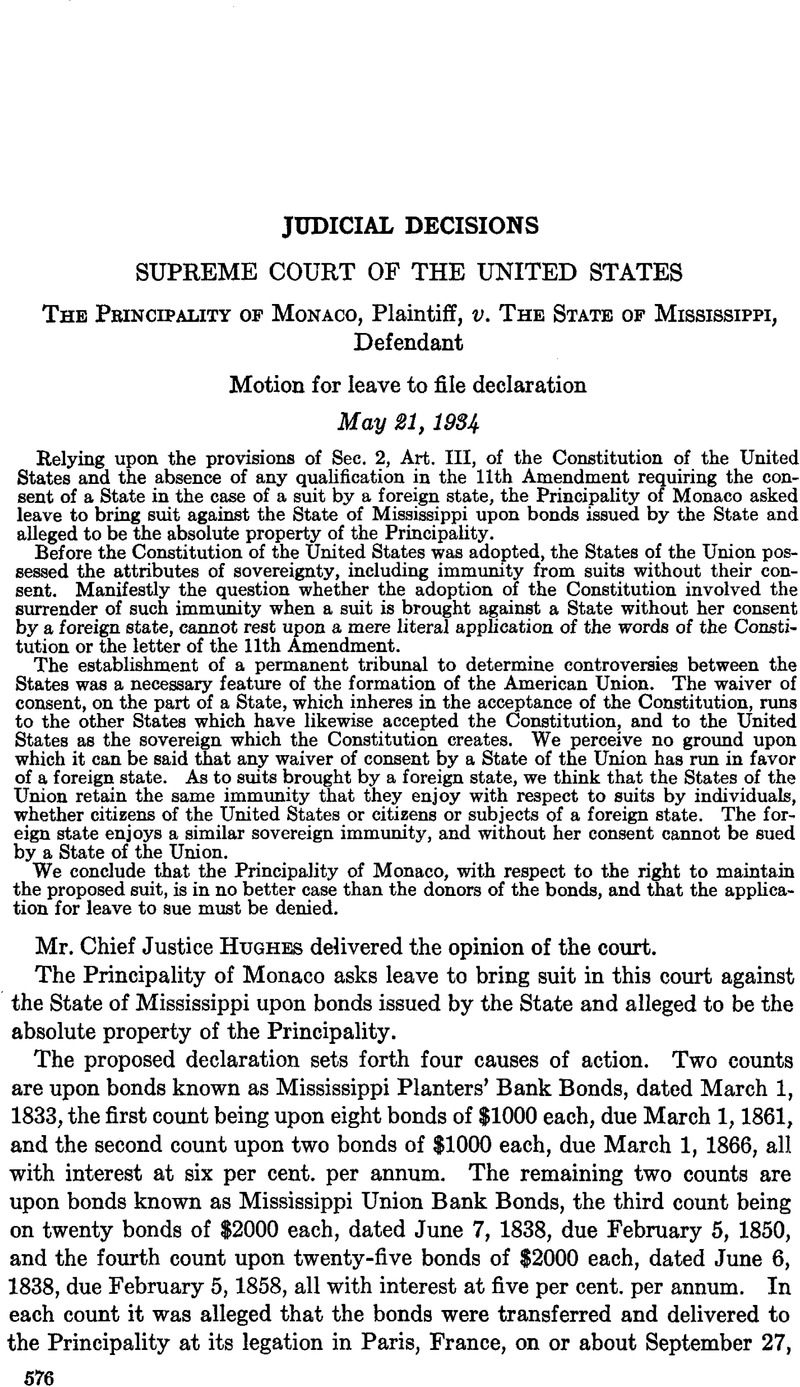No CrossRef data available.
Published online by Cambridge University Press: 12 April 2017

1 See Briscoe v.Bank of Kentucky, 11 Pet. 257, 321;Darrington v. Bank of Alabama, 13 How. 12, 17; Beers v. Arkansas, 20 How. 527, 529; In re Ayers, 123 U. S. 443, 505.
2 There is no question but that foreign states may sue private parties in the federal courts. King of Spain v. Oliver, 2 Wash. C. C. 431; The Sapphire, 11 Wall. 164. In the latter case the court said (pp. 167, 168): “Our own government has largely availed itself of the like privilege to bring suits in the English courts in cases growing out of our late civil war. Twelve or more of such suits are enumerated in the brief of the appellees, brought within, the last five years in the English law, chancery, and admiralty courts. There are numerous cases in the English reports in which suits of foreign sovereigns have been sustained, though it is held that a sovereign cannot be forced into court by suit.” (Cases cited.) In Kingdom of Roumania v. Guaranty Trust Co., 250 Fed. 341, the court held that the bringing of an action by a foreign nation in a court of the United States to recover a deposit placed to its credit in a bank was not a waiver of its immunity as a sovereign from suit by other parties, and hence that the court was without jurisdiction to permit the defendant by interpleader to substitute as defendant another party claiming a lien on the deposit as a creditor of the plaintiff. See, also, Columbia v. Cauca Co., 190 U. S. 524; Ex parte Muir, 254 U. S. 522.
3 See Story on the Constitution, sec. 1699; Willoughby on the Constitution (2d ed.), sec. 885.
4 For statements by Madison and Marshall in the Virginia Convention in relation to the non-suability of States by individuals, see 3 Elliot's Debates, 533, 555.
5 For comment upon the force of this dissent, see Hans v. Louisiana, 134 U. S. 1, 12, 14; Williams v. United States, 289 U. S. 553, 574, 576, 577.
6 See Missouri v.Illinois, 180 U. S. 208, 240; New Hampshire v. Louisiana, 108 U. S. 76.